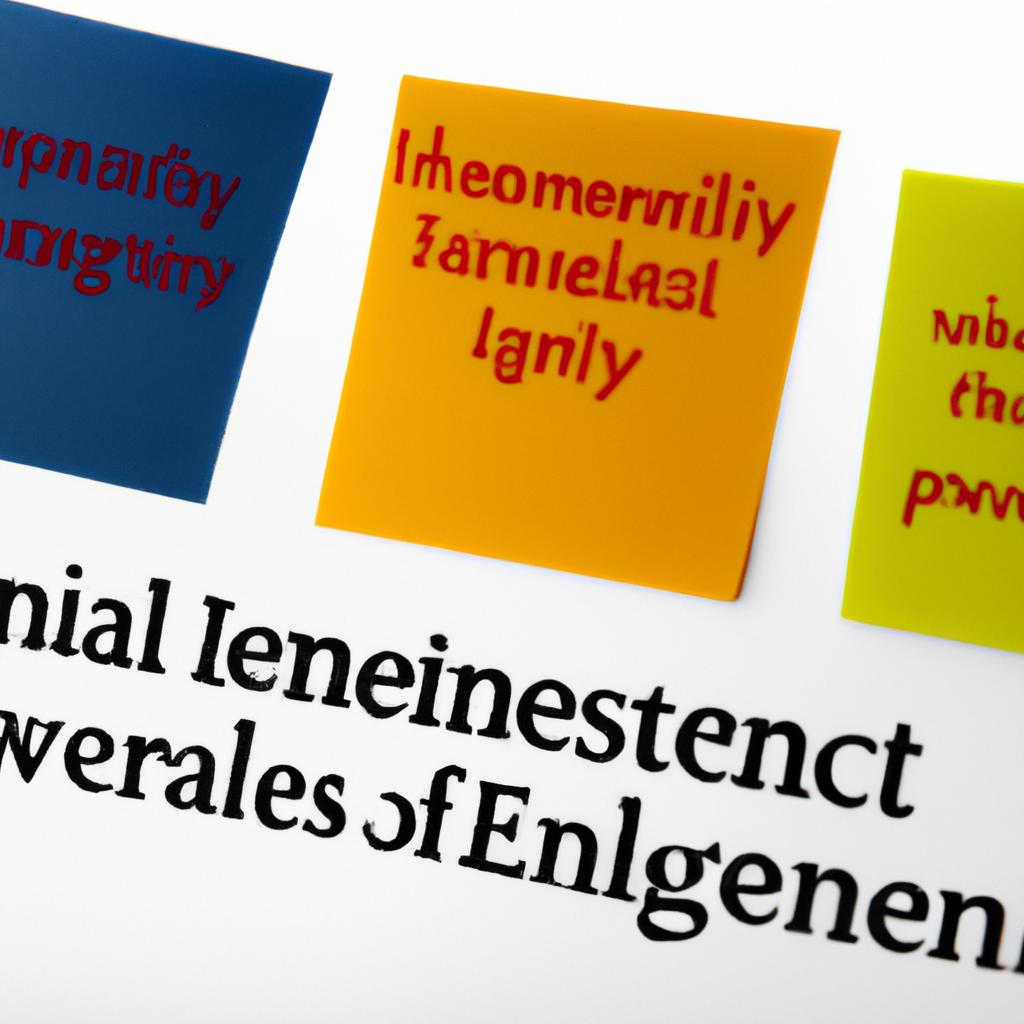**”The Role of Emotional Intelligence in Workplace Wellness: How Understanding Emotions Can Enhance Team Dynamics and Productivity”**
The Role of Emotional Intelligence in Workplace Wellness: How Understanding Emotions Can Enhance Team Dynamics and Productivity
In today’s fast-paced work environment, emotional intelligence (EI) has emerged as a critical factor for not only personal success but also for the collective health of teams. Companies that prioritize workplace wellness through emotional intelligence strategies can foster healthier, more productive work environments. In this blog post, we will explore how understanding emotions can enhance team dynamics and boost productivity, while also providing actionable wellness tips.
Understanding Emotional Intelligence
What is Emotional Intelligence?
Emotional intelligence refers to the ability to recognize, understand, and manage our own emotions, as well as the emotions of others. According to psychologist Daniel Goleman, who popularized the concept, EI consists of five key components: self-awareness, self-regulation, motivation, empathy, and social skills. Therefore, individuals with high emotional intelligence are often more adept at navigating social complexities, making them invaluable in collaborative settings.
The Importance of EI in the Workplace
Moreover, workplaces that embrace emotional intelligence are often characterized by open communication and strong relationships. When team members understand and manage their emotions effectively, they are more likely to resolve conflicts amicably and foster a supportive atmosphere. Consequently, this can lead to increased job satisfaction and lower turnover rates.
The Impact of EI on Team Dynamics
Enhancing Communication
Effective communication is the backbone of any successful team. Individuals with high emotional intelligence can articulate their thoughts and feelings clearly, facilitating open dialogue. On the other hand, when team members struggle with emotional awareness, misunderstandings can arise, leading to tension and inefficiency. Therefore, fostering emotional intelligence within teams can significantly enhance communication quality.
Building Trust and Collaboration
Furthermore, trust is essential for team cohesion. Employees who demonstrate empathy and understanding are more likely to create an environment where others feel safe to express their thoughts and concerns. This trust fosters collaboration, allowing teams to work more effectively towards common goals. In addition, collaborative teams are often more innovative, as diverse perspectives can lead to creative solutions.
Promoting Workplace Wellness through Emotional Intelligence
Nutrition Tips for Enhancing Emotional Well-Being
Nutrition plays a crucial role in emotional health. Therefore, incorporating a balanced diet can enhance mood stability and cognitive function. Here are some nutrition tips for the workplace:
1. **Stay Hydrated**: Dehydration can lead to irritability and fatigue. Encourage employees to drink water throughout the day.
2. **Snack Wisely**: Offer healthy snacks like nuts, fruits, and yogurt to keep energy levels steady and moods balanced.
3. **Mindful Eating**: Encourage employees to take breaks for meals without distractions. Mindful eating can reduce stress and improve focus.
Exercise Advice to Boost Mood and Productivity
Exercise is another vital aspect of emotional wellness. Engaging in physical activity can reduce stress and increase overall happiness. Here are some exercise tips for the workplace:
1. **Incorporate Movement**: Encourage short breaks for stretching or walking during the day. Even a few minutes can make a difference.
2. **Group Activities**: Organize team-building exercises that involve physical activity, such as group yoga or team sports. This not only promotes fitness but also strengthens team dynamics.
3. **Set Fitness Goals**: Consider implementing wellness challenges that motivate employees to participate in regular exercise. This can create a sense of community and accountability.
Health Benefits of Emphasizing EI and Wellness
The health benefits of fostering emotional intelligence and wellness in the workplace are significant. For example, companies that prioritize EI often see reductions in employee stress levels, which can lead to lower healthcare costs. Moreover, employees report higher levels of job satisfaction, resulting in increased productivity and creativity.
In addition, fostering an emotionally intelligent workplace can lead to enhanced employee engagement, which is critical for retaining talent. High engagement levels correlate with better performance and a more positive work culture.
Conclusion
In summary, emotional intelligence plays a pivotal role in enhancing workplace wellness. By promoting understanding and management of emotions, teams can improve communication, build trust, and foster collaboration. Furthermore, incorporating nutrition and exercise into the workplace can significantly enhance emotional well-being and productivity.
Therefore, organizations that invest in emotional intelligence training and wellness programs are not just improving employee satisfaction; they are also paving the way for long-term success. As we continue to navigate the complexities of the modern workplace, let us remember that nurturing emotional intelligence is essential for creating a thriving work environment. By doing so, we can foster a culture where both individuals and teams flourish, ultimately leading to enhanced productivity and workplace wellness.
FAQ
What are the key components of emotional intelligence?
Emotional intelligence consists of five key components: self-awareness, self-regulation, motivation, empathy, and social skills. These elements enable individuals to recognize, understand, and manage their own emotions and the emotions of others, which is crucial for effective collaboration in the workplace.
How does emotional intelligence impact team dynamics?
Emotional intelligence significantly enhances team dynamics by improving communication, building trust, and fostering collaboration. Teams with high emotional intelligence are better equipped to resolve conflicts, share diverse perspectives, and work effectively towards common goals, ultimately leading to increased productivity and innovation.
What wellness tips can organizations implement to promote emotional well-being?
Organizations can promote emotional well-being through various strategies, such as encouraging hydration, providing healthy snacks, and supporting mindful eating. Additionally, incorporating regular physical activity, organizing team-building exercises, and setting fitness goals can enhance both mood and productivity, contributing to a healthier workplace environment.















Post Comment